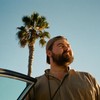There is a rumour going around my hometown that, for a short period of time, Jesus lived there. It's a load of shit. Obviously it's a load of shit. But as a blatantly stupid in-joke between like 15 people, it represents something fundamental about the small village of Ynysybwl, where I'm from.According to estate agents and particularly detailed road maps, Ynysybwl exists. But very few people could pronounce it (Un-niss-uh-bul) or tell you where it is (between Cardiff and Merthyr, ish). It sits in the dip of what feels like a million mountains, has a population of roughly 4,700 and, in addition to having an incomprehensible lack of vowels (in English), its name has no discernible meaning. "Ynys" translates to "island" or "river meadow", but "bwl" isn’t even a word. One theory is that it’s a corruption of Ynys-y-pwll ("the island near the pit"), another suggests it might be a reference to the bowl shape of the river-meadow and/or some sort of once-popular handball game. But it's just as likely that someone made it up for a laugh. Today, most people refer to it simply as "The Bwl". Hence the phrase: "Jesus was a Bwl boy."
Advertisement
Like most Welsh Industrial Revolution-born villages, Ynysybwl has more trees than people and is structured around things that don't really exist anymore. At some point there was a mine and a male voice choir and all the other things you've seen in cracked old photographs of pre-Thatcher Britain, and now there is mainly a Co-op and a tattoo studio that never looks open. There is a single-track road through which everything – cars, buses, delivery vans, logging trucks – goes in and out. It's also an unrivalled force for bringing the community together, because there's parking on both sides and everyone has been fuming for two decades about how Robert Street is "mental, like chicken run".The rest is a rural hodgepodge of schools, pubs, churches, chapels, sports clubs and a few remaining local businesses. The most visually dominating structure is a community project building that has a Christmas tree jutting out of the wall 365 days of the year because nobody can be arsed to take it down. Council cuts have axed the library, the police station and a bunch of youth services, but for some reason there's a paddling pool called Butcher's Pool that still opens every summer. It’s eight inches deep, the floor is like a bed of nails, and a kid once told me it was called that because a child-murdering paedophile used to live in the toilet block. Another outrageous fib, but then every village comes with its own mythical paedo, doesn’t it.
Advertisement
I guess the most accurate word to describe Ynysybwl would be "quaint", but you could say that about anywhere that doesn’t have 4G or a train station. Ynysybwl is something else. It's weird. It has that half-removed, "well, there you are then" sort of ethos that previously self-sustainable villages often have once they’ve outlived their original purpose and been left to their own devices.Vibes-wise, it’s somewhere between the comic nihilism of Heads of the Valleys and the washed-out tranquility of a Beatrix Potter illustration. There’s an air of heaviness all around – not a depressing one, but a knowing one. Like, if the trees could speak they’d take a long drag on a cigarette and tell you they’ve seen some shit. I think it’s because history is omnipresent. It’s tangible in the bricks of terraced houses built for miners in the late 1800s, visible in land that used to be Lady Windsor Colliery but is now deep green and unruly, definitive in that – again, as with many traditionally working class areas – it used to be somewhere you lived, but now it's somewhere your house is.
Here are some things that come to mind when I think of childhood:The woodland across the road which used to turn completely lilac with bluebells every spring (I was told not to pick them because they were endangered, but I picked them anyway and now they don’t grow there anymore). Falling into a bramble bush and cutting my head open. Being really into spiders until I woke up and found one in my pyjama bottoms, and then being really not into spiders. Washing cars, painting fences and losing a trainer in a particularly embarrassing encounter with a mud bog. Finding an injured bat behind the wheel of a car and calling the RSPCA (very exciting). Finding a massive wasp nest in my bedroom cupboard after my parents dismissed my complaints of a constant buzzing sound as paranoia (very traumatic). The house martins that nest in the eaves and occasionally fall to an early grave on the curb. It's all very idyllicism and death. Very Watership Down but with people. Then adolescence happened.
Advertisement
It’s funny how the setting of your life changes. The community project building became the site of my first kiss (what's up, Richard, how’s the kids?). The parks, the pool, the sports grounds – all places to loiter and nod along to boys' opinions of bands I’d never listened to (and then aggressively research them later, which is how you end up becoming a music journalist apparently). Couches became vehicles upon which to do hand stuff, the woods became somewhere to wee after getting tipsy on precisely one can of Kronenbourg and thrilling absolutely no one with some performative same-sex action.The media almost always portrays areas like these as bleak and deprived. Rarely do you hear about them in the news, unless it's in a story about people being unemployed, in poverty or on drugs. A BBC story from 2013 titled "The unbearable sadness of the Welsh valleys" described the area as so depressing that not even weeds grow there, which is a line so melodramatic not even R.S. Thomas would have published it. But despite being cut off from things physically, because the bus service operated on a "once every whenever we fancy it" basis, I don’t ever recall feeling restricted. In my view (I probably don't have to mention at this point that I'm an only child) there were too many secret hideouts for it to be boring, too much space to explore – yourself, or someone else – without much scrutiny. It enabled this weird state of lawlessness within a bubble.
Advertisement
As an aside, I'd like to say that I was lucky to hit my teens literally just as bands like Funeral For A Friend, Midasuno, Hondo Maclean and *cough*lostprophets*cough* rose through the ranks, thus emboldening South Wales’ already prolific history as a music hub. I’m not quite sure what I would have done with my time had the countless venues – The Pop Factory in Porth, Fleur De Lys in Blackwood, Tom's in Treforest, to name a few – and pubs hadn't existed, or cared about entry policy. People always find their thing, regardless of where they live or when. Mine just happened to be joining every other teen who owned a Famous Stars & Straps vest and lived within a 15-mile radius, to watch some ridiculous screamo or metalcore bands, get drunk and then go to school in the morning. So I’d like to thank emo and a culturally lax approach to age restrictions for making me the person I am today.I can’t claim to know what young people do to kill time in the sticks today, but in 2003 you could send your mate with the biggest boobs into an off license and have them emerge victorious with a bottle of Glen's. And that definitely shaped my experiences, because most of my formative memories of puberty involve being absolutely pissed.On that note, it’s time to jump three miles down the road, to Pontypridd.
Once upon a time, Pontypridd was a banging market town. Now, it’s a pedestrianised street lined with charity shops and pubs, more car parks than feels necessary, and an actually very sick Arts Centre. It’s mostly famous for producing Tom Jones and having a bridge.
Advertisement
William Edwards, the bloke who designed the bridge, went on to make a lot of money building even more bridges in America, where he died and left behind a massive estate that went to no one. Now, anyone who has the surname "Edwards" in their family history – including my nan – has written to an executor claiming to be a distant relative so they can get their hands on it. So far, no joy.
Another piece of local history is this pub, which is where two absolute legends wrote the Welsh national anthem. There is a monument dedicated to them across the road in Ynysangharad Park, which we’re going to arrive at – to use the parlance of my people – now, in a minute.
Firstly, here is the monument. Quite hard to imagine these two sitting in The Llanover nursing a pint, to be honest. These days it has less of a "watering hole for bards" vibe and much more of an "any bloke who comes in here wearing a dress and waving a lyre about is getting decked" vibe, but there we go.
Secondly, fucking hell. Ynysangharad Park – or "Ponty Park", as it is referred to most of the time. Where do I even begin.I have been, to put it bluntly, in some shapes here. While Ynysybwl is largely filled with childhood innocence, romantic notions about the connections between man and nature, and is mostly something I looked at from my bedroom window while writing about how my crushes didn’t fancy me back, Ponty Park was puberty’s hell-mouth.
Advertisement
This park is where I watched a drug deal take place for the first time (a thumbnail of resin, £5). It’s where I watched people do drugs for the first time. It’s where I stood by helplessly as two friends of mine got the shit kicked out of them by some other lads who didn’t like the look of their jeans. I’ve (mam and dad, don’t read this) had sex in this park; I’ve broken into this park at night to swim in the lido (again, really not sure what it is with CF37 postcodes and outdoor pools); I’ve been drunk in this park; I've been sick in this park; I’ve been arrested in this park; and I had my first ever break-up in this park (Danny, wherever you are, I hope you’re good).
And this is where my journey ends, really. Once I hit 15/16 and my parents trusted me enough to get on a train without dying, I spent a lot more time in Cardiff and Newport doing exciting metropolitan things like drinking Frappuccinos and meeting up with people off Myspace. I softened my accent, because an English-Irish friend at school said it made people sound thick. And, of course, that wouldn’t do, because I was, like, into books and stuff.So I became an arsehole and internalised loads of shame about where I was raised, only to move to a privately-owned council flat in London and spend my evenings re-learning Welsh on Duolingo and getting bang into folklore about lakes.Fucking typical, innit.@emmaggarlandPreviously in the Home Coming series:YorkEdinburghDartford

